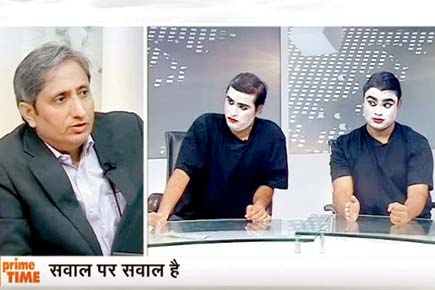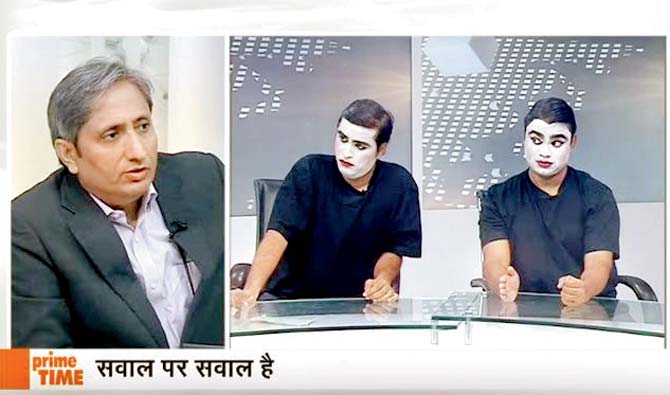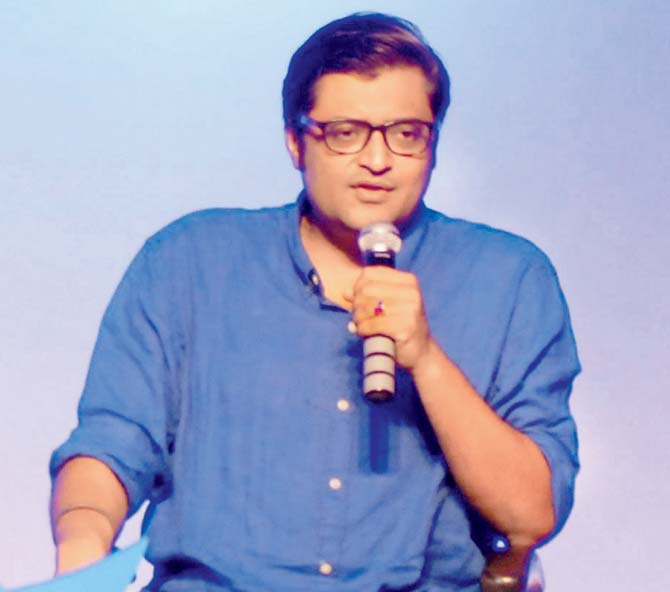Gagging a news channel, even for a day, is in spirit exactly the same as government censorship of newspapers during the Emergency


Several relatives asked me why Arnab Goswami left Times Now, but no one seemed bothered that Ravish Kumar was going to be off air because the government decided to punish NDTV India for flimsy reasons. On Friday night, Kumar hosted a special pantomime show that spoke volumes
ADVERTISEMENT
Chhath puja is that time of year when a lot of my middle-class Bihari relatives gather and argue politics. Political argumentation is what made me a journalist.

In 1976, my family was finishing a visit to India from the US; I was 12 years old, China’s Chairman Mao Zedong had just died, and India was still under Emergency rule imposed by Prime Minister Mrs Indira Gandhi. We stayed for a few days in South Delhi with my grand-uncle, who was deputy news editor at the The Indian Express and who lived with his boss, the legendary news editor Piloo Saheb (both were bachelors in their fifties). My granduncle often had to carry finished pages of the newspaper at night to the information and broadcasting ministry for approval (sometimes they delayed it just enough to miss the printing deadlines — publishing operations have tight schedules due to distribution issues). He was bitterly opposed to Mrs Gandhi. Piloo Saheb loved to play foil. That particular night in my memory, they and some other friends were passing around a bottle of rum and arguing passionately about Mao; the details escape me, except that granduncle revered Mao, while Piloo Saheb dismissed the old commie. The intensity of the moment made an impression on me. It wasn’t as if I began plotting my career as a journalist — in fact, I later did a pre-medical course and graduated as a mathematician — but when I was forced to find work, journalism seemed the least unnatural path to take.
Since I’ve been a journalist for a long time, when I meet my relatives for Chhath puja, I have to sit through a lot of half-baked nonsense that substitutes for news in our society (as a Kashmiri friend once told me: in the Valley, rumours are news, and news is propaganda). There have been fewer questions this Chhath, possibly because for the second year I have joined my aunt in conducting the puja (it concludes with prayers to the rising sun this morning); this entails four days of fasting which are initially draining and disorienting. The fasting, however, also opens your inner eyes to deeper truths; this spiritual purification is brief but intense and lasts as long as the fast. (Another Kashmiri friend tells me that he experiences the same during the days of Roza.) My relatives probably think that asking contentious political questions of a fasting man is bad manners; or that I’m not up to it. Or, it could be that they avoid controversy as I’m not a big fan of their prime minister, a man who is more toxic to India than the air in Delhi these days.
Nonetheless, several relatives this weekend asked me why Arnab Goswami left Times Now. It is surprising since they all prefer to watch Hindi news, not for the breathless exposition on bizarre local events but because they are uncomfortable with English. Presumably Arnab is a bigger celebrity than we thought — an icon, likely because he is in step with the government’s thinking and what lies it wishes to disseminate. As big as he may be, however, he reminds me of other superstars who left the Times group, only to end up in obscurity.
No one seemed bothered that Ravish Kumar, one of the best TV journalists, was going to be off the air because the government decided to punish NDTV India for flimsy reasons of anti-national activity. Perhaps it is because anti-journalist action has become commonplace: a journalist writing about criminal-neta Md Shahabuddin is killed in Bihar; several journalists in revolt-ridden Bastar are killed; a newspaper in Kashmir is shut down. What’s the big deal? Or perhaps they don’t care for journalists who speak against the current government. They prefer the likes of the Hindi TV channel which has a case of blackmail against its editors, but behaves as if national security and industrial development are more important than individual rights and dignity.
If you were to shut down all the channels that ask ‘too many questions’, to quote our junior home minister, you would probably be left with TV channels that are nothing more than slick, modern versions of Doordarshan in the seventies and eighties. Many readers may not remember that. Those that do will recall that nobody then took DD news seriously.
Many right-wing ‘intellectuals’ say this is no emergency, but shutting down a pesky news channel for a day is in spirit exactly the same as having finalised news pages approved by I&B bureaucrats. Some middle-class Indians welcome this sort of control, justifying it as necessary if the country is to make progress. So much progress, in fact, that I am finding it hard to see the sun for my annual Chhath puja, obscured as it is by the toxic smog that is Delhi.
Senior journalist Aditya Sinha is a contributor to the recently published anthology House Spirit: Drinking in India. He tweets @autumnshade. Send your feedback to mailbag@mid-day.com
 Subscribe today by clicking the link and stay updated with the latest news!" Click here!
Subscribe today by clicking the link and stay updated with the latest news!" Click here!






